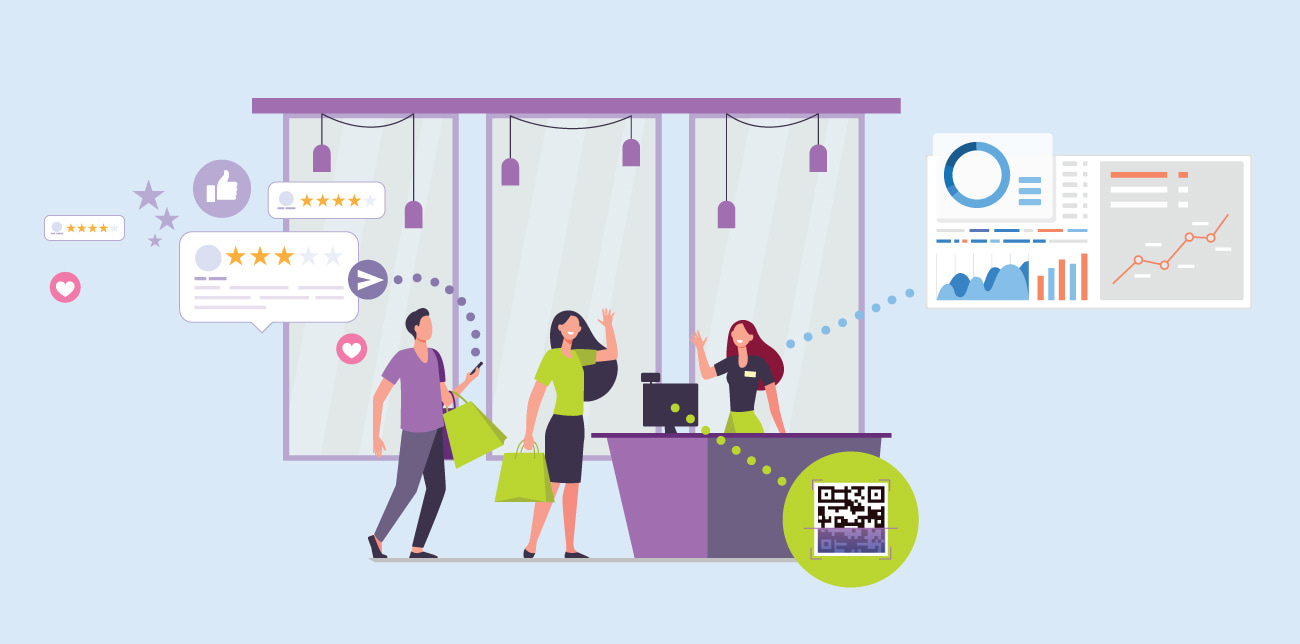Retail business intelligence (BI) has revolutionized the retail industry, allowing retailers to make intelligent and profitable decisions, based on data insights that used to be unavailable only a decade ago. Business intelligence has been very beneficial for retail operations and customer experience, as retail data from sources such as sales logs, customer feedback, inventory management systems, and CRM systems can be analyzed to gain actionable insights.
Leveraging business intelligence tools lets retailers make decisions that enhance the customer experience in many ways, such as creating personalized product recommendations and tailored marketing campaigns. The usefulness of business intelligence tools is shown through impressive statistics from retail giants such as Amazon, which reported a 29% increase in sales from personalized product recommendations after implementing them. Similarly, Walmart increased its online sales by 15% after implementing business intelligence tools for data-driven decision-making.
These are examples of how retail businesses have been able to use retail business intelligence platforms to optimize customer experience and make strategic decisions that can positively impact the bottom line. Business intelligence tools are essential to developing a successful retail strategy in today’s competitive landscape.
Table of Contents
- > Do you know what Retail Business Intelligence really is?
- > Key benefits In Retail Business Intelligence
- > Re-exploring customer experience with Retail Business Intelligence
- > Get inspired by the best: Must-know examples of Retail Business Intelligence
- > Build the retail company of the future with Retail BI
Do you know what Retail Business Intelligence really is?
Business Intelligence (BI) is a technology-driven business data collection, analysis, and visualization process. It provides meaningful business insights that can help organizations make better business decisions. Retail businesses, in particular, have been heavily impacted by business intelligence, allowing them to quickly analyze past trends and future projections to inform their decisions.
One of the benefits of business intelligence in the retail industry is that it can help business owners and managers make decisions on how to optimize inventory, pricing, labor costs, marketing campaigns, customer service, and more. Retailers can use predictive analytics to stay ahead of customer trends and prepare for any demand shifts. Business intelligence tools provide real-time insight, enabling companies to craft the optimum product selection based on buying patterns.
Retail entrepreneurs have the unique opportunity to gain insight into their operations by leveraging business intelligence. With powerful analytics, they can acquire a comprehensive view of their venture, giving them invaluable actionable data to drive success. For instance, BI tools can be utilized to detect customer purchasing trends, pinpoint inventory errors, and track sales figures for an array of product categories. With deep insights from business intelligence reports, retailers can deliver unforgettable customer experiences by catering directly to their needs.
To make the most informed decisions in the retail business, owners need different data sources to comprehend consumer buying trends. Data connectors join multiple applications together for a comprehensive insight into operations. Dashboards are crucial for observing real-time intelligence and promptly reacting; with them, managers can monitor sales performance, detect development scenarios, and respond effectively to evolving market conditions. Together, these business intelligence solutions provide retail businesses with the resources to make data-driven decisions and succeed in this ever-changing industry.
Key benefits In Retail Business Intelligence
In a fast-changing industry, it’s even more important for retailers to stay ahead of the curve. Business intelligence in the retail business offers several key benefits, including:
- Increased business efficiency. BI helps business owners collect data efficiently and make decisions based on that information.
- Improved customer experience. Business intelligence software can be used to create personalized experiences for customers that will keep them coming back.
- Enhanced business decision-making. Business intelligence helps owners gain better insights into customer behavior, market and other retail trends, and product performance.
- Customer acquisition, retention, and increased sales. Business intelligence allows business owners to leverage their data to create targeted marketing campaigns and tailor product offerings for specific customer preferences.
Retail BI benefit #1: Earned media analysis
Earned media analysis helps retailers quantify the impact of their campaigns on consumer sentiment, allowing them to make better decisions about their advertising budget and target audience. It can also provide insights into how customers engage with the brand, which helps develop more effective marketing strategies.
Retailers can maximize their ROI by staying on top of customer sentiments regarding their offerings. This way, they can tailor campaigns to best suit the needs and preferences of consumers for ultimate efficiency.
Retail BI benefit #2: Customer analytics
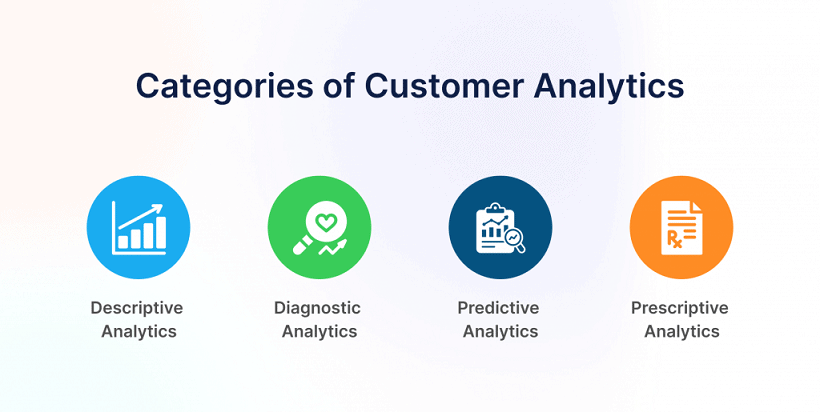
Customer analytics is a powerful tool that helps retailers identify customer trends, preferences, and behavior. With access to detailed customer profiles, retail businesses can better understand their target audience and develop personalized marketing campaigns tailored specifically to them. In addition, customer analytics can reveal shopping habits that are valuable insights for promotions or discounts to drive sales. Using customer analytics, retailers can effectively increase their sales and customer loyalty.
Retail BI benefit #3: Predictive analytics
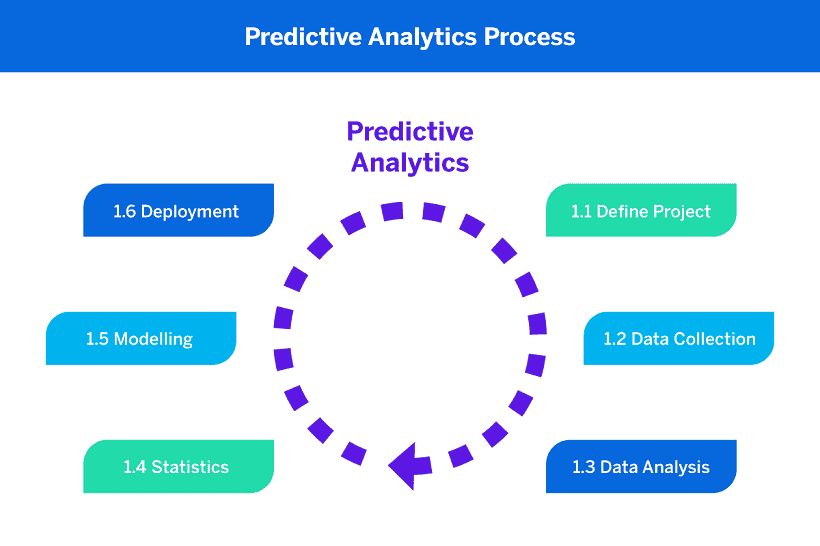
Predictive analytics help retailers use their data to anticipate customer behavior and identify potential growth areas. Businesses can better understand consumer habits and predict future shopping patterns by analyzing past sales trends, customer demographics, and other data points. This predictive insight helps retailers optimize their operations, target the right customers, and identify potential growth opportunities.
Retail BI benefit #4: Product Analysis
Product analysis is a formidable tool for retailers, allowing them to evaluate their product performance and develop strategies to increase sales, improve customer satisfaction, or expand into new areas. With this data, businesses gain greater insight into what products are popularly selling and why that might be so. Furthermore, they can identify methods to enhance existing items or services, leading to higher success rates.

Retail BI benefit #5: Effective digital marketing

For retail businesses, having a successful digital marketing strategy is essential. With the help of retail BI insights, retailers can develop more effective campaigns tailored to their customer’s behavior and preferences. This tactic allows them to target the right people with ads, optimize campaigns for optimal ROI results, and assess how well they have performed afterward. Companies can create engaging content that will capture attention and drive sales by understanding customer interactions across various platforms, such as social media pages.
Retail BI benefit #6: Inventory management
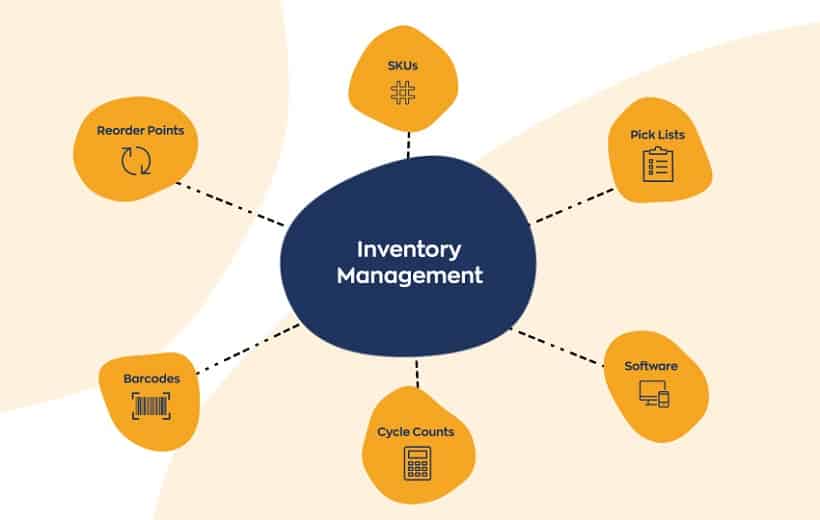
Mastering inventory management is the key for any retail business to thrive, and that’s where retail BI can provide an edge. Assessing sales trends, consumer demand patterns, and current stock levels lets you make correct choices on when — and how many — products you must order to avoid oversupply or running low. Furthermore, with real-time alerts about diminishing stocks, businesses can act swiftly, even before customers get frustrated about empty shelves.
Retail BI benefit #7: Better understanding of customer behavior
Retailers who wish to succeed must understand their customers’ behavior and gain insightful information through retail BI. With detailed consumer data, businesses can access the key insights that drive buyers to purchase certain products. Using this knowledge as a foundation for their marketing strategy allows companies to personalize tactics and deliver results that exceed expectations, boosting sales performance and leaving customers pleased with their experience.
Retail BI benefit #8: Improved merchandising

Using retail BI can give businesses the advantage they need to maximize their potential sales. By exploring customer demand, store stock levels, and other relevant data points, retailers can make educated decisions on which products they should stock in stores or online and how they should present them so that customers will notice. Furthermore, promotional incentives like discounts or coupons are a great way to boost product visibility and increase overall revenue generated from these items. Harnessing the power of retail BI provides invaluable insights into what works best for your business.
Retail BI benefit #9: Data mining
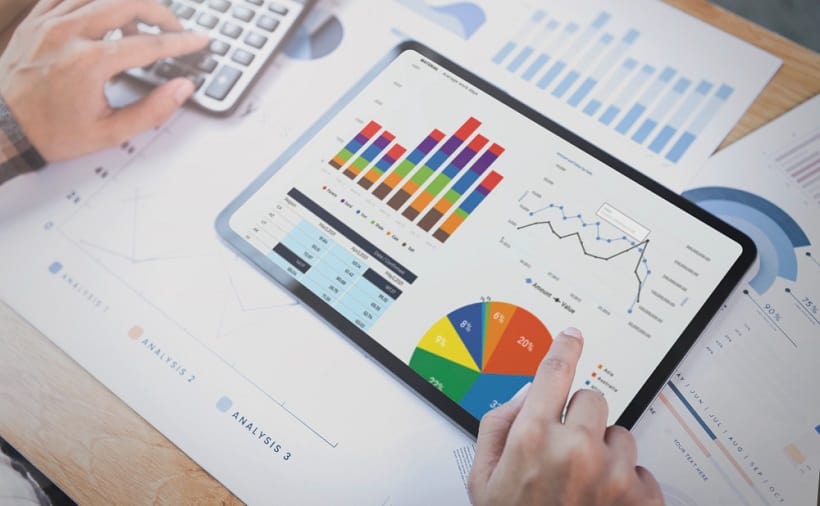
By employing powerful data mining techniques, retailers can uncover hidden patterns and trends that would otherwise go unnoticed. The invaluable information that comes from expansive datasets can be utilized to optimize operations, enhance customer service, and raise sales figures. Data mining is a highly effective tool for retailers seeking extensive insight into their consumers’ behavior or other business areas.
Retail BI benefit #10: Dashboards and visualization
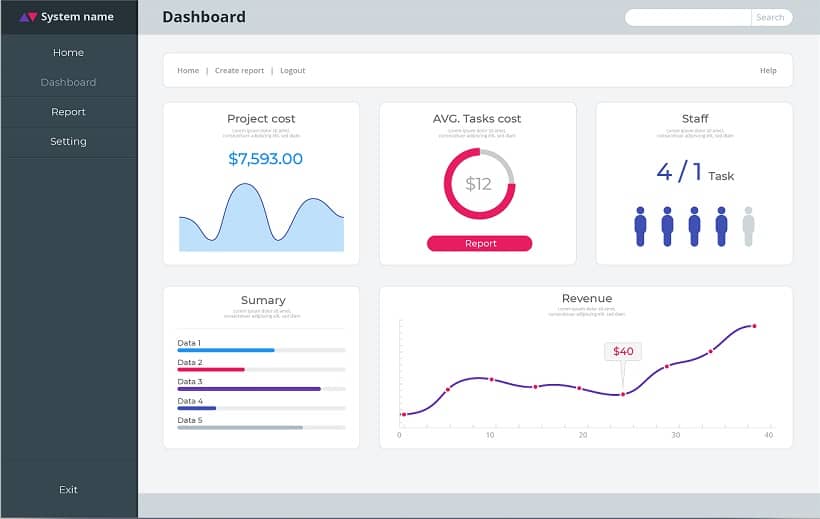
Retailers no longer have to be blindfolded when it comes to taking advantage of their data. Dashboards and visualization tools can illuminate the path with stunning real-time insights into customer trends, sales patterns, inventory levels, and much more. Now, empowered business owners can swiftly act on any emerging prospects that come their way.
Retail BI benefit #11: Supply chain efficiency

Thanks to retail business intelligence, businesses can make well-informed decisions that are sure to optimize their supply chain processes. BI helps them to accurately order the correct number of items at the right time while avoiding overstocking or running out. It also gives businesses an in-depth understanding of which vendors offer the best prices and quality, so they get maximum value for their money spent.
Re-exploring customer experience with Retail Business Intelligence
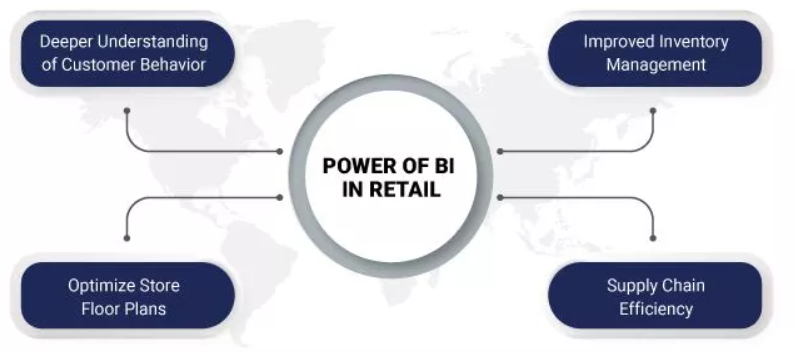
Business intelligence (BI) is a potent asset in the arsenal of any retailer’s customer-centric initiatives. Through collecting and analyzing data related to customers’ behavior, interests, and interactions with your brand, BI provides real-time insights into what truly motivates their decisions. These insights help retailers make the correct choices in targeting customers for maximum satisfaction and an exceptional user experience.
For instance, Amazon has utilized business intelligence to examine customer reviews and feedback to determine which products are most beloved among their users. This tactic allows Amazon to fine-tune its product search engine so that customers can easily locate what they need without wasting time. Similarly, Starbucks applies BI technology to send personalized offers based on individual clients’ purchasing trends. This technique helps maintain loyalty among its existing customers while luring potential new ones.
Understanding customer trends and preferences, optimizing pricing and promotional offers, and improving inventory management are some ways retailers can leverage business intelligence to create an enhanced customer experience. Through the power of data, companies gain valuable knowledge about their target audience to provide more personalized interactions with shoppers. With this unique insight at hand, retailers have the opportunity to promote greater engagement for customers through tailored experiences.
Retail Business Intelligence can identify improvement opportunities
Business intelligence allows retailers to identify and take advantage of opportunities to enhance their customer experience. Reading data about customers’ interests, preferences and actions, helps retailers to effectively measure their clients’ satisfaction levels while devising ways to give them personalized offers tailored for each individual. Personalization fosters increased engagement by creating a shopping atmosphere tailored especially for clients and helps retain existing customers and entice potential ones.
Retail Business Intelligence provides real-time data visualization

With retail BI analytics, companies can leverage real-time data visualizations to acquire imperative insights into their customer base. These insights enable businesses to adjust their customer engagement strategies and optimize the shopping experience for customers by recognizing and acting on trends in a timely fashion. With these meaningful visuals, retailers can gain an advantage over competitors by identifying shoppers’ preferences more efficiently and segregating them accordingly, allowing them to stay ahead in this ever-changing retail landscape.
Retail Business Intelligence stops in-the-moment negative customer experiences

Retail analytics business Intelligence provides retailers the invaluable opportunity to detect and address customer experience issues before they become an issue. The real-time data visualizations a business intelligence dashboard provides, allow retailers to understand better their customers’ purchasing habits, preferences, and interactions. It enables them to rapidly resolve potential problems for shoppers to have a more seamless and pleasant shopping journey.
Retail Business Intelligence makes easy sharing of findings possible

BI applications in the retail industry allow companies to share their findings and insights with stakeholders easily. By leveraging the power of data, retailers can quickly identify new trends and customer preferences to optimize their product offerings, customer engagement strategies, and pricing. These insights can then be shared with other stakeholders to ensure everyone is on the same page and working toward the same goal.
Retail Business Intelligence is time efficient
Using BI in the retail industry lets companies easily stay ahead of the curve in understanding their customers’ needs and preferences. From automating several procedures to utilizing data’s full potential, this tool provides an efficient way for merchants to save time and resources that could be put toward other projects. They can take decisive action expeditiously while keeping up-to-date on all customer trends.
Retail Business Intelligence offers omnichannel insight
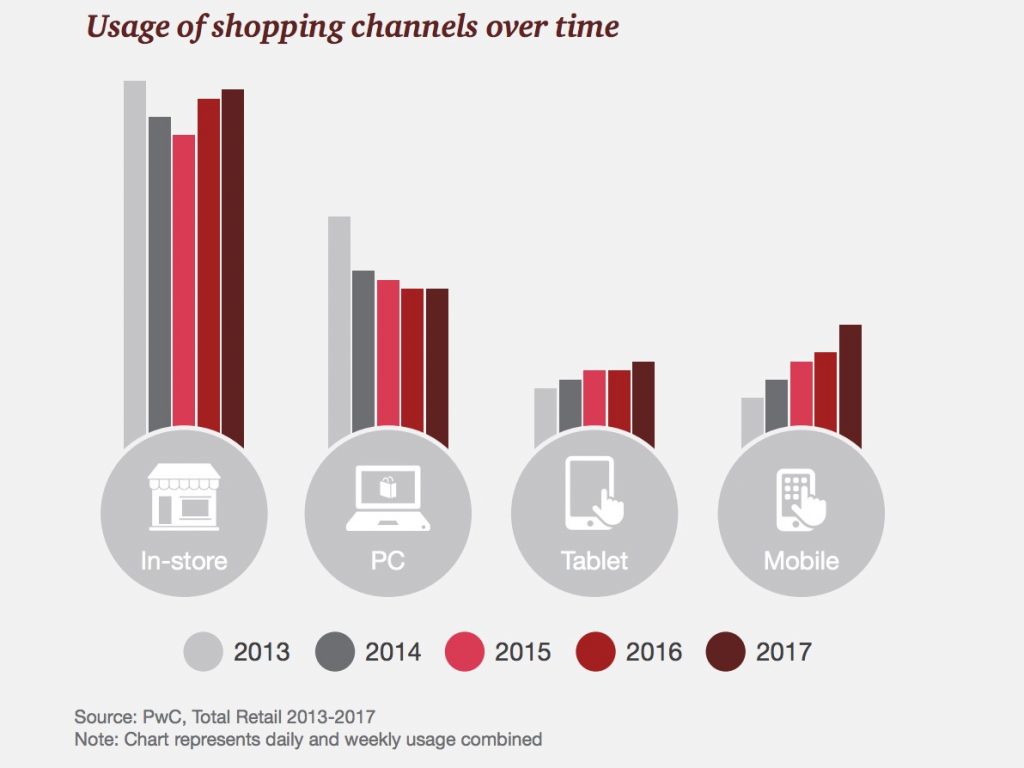
Another benefit of retail analytics is that it allows businesses to gain omnichannel insight into their customer base. Omnichannel insights help them to understand customer behavior, preferences, and interests across different channels — online and offline. With this level of comprehensive insight, retailers can identify the most pertinent customer experience opportunities and develop a more tailored experience that resonates with customers regardless of their chosen channel.
Retail Business Intelligence enables accurate customer experience predictions
Business analytics in the retail industry lets companies tap into real-time data visualization and analysis to forecast customer experience accurately. Through discerning shopper trends in an expedited fashion, retailers can use business intelligence to improve the customer experience. Consequently, they can confidently predict customer behavior so that sound decisions can be made regarding future endeavors.
Get inspired by the best: Must-know examples of Retail Business Intelligence
Leading retailers, from Amazon to Walmart, are leveraging the power of business intelligence in the retail industry to drive customer engagement and create a more tailored experience. By exemplifying how BI can be used for smarter decision-making in the form of successful business intelligence retail case studies, other companies worldwide have access to this valuable data that will enable them to gain an edge over their competitors through greater knowledge about their customers.
Coca-Cola
Coca-Cola leveraged business intelligence to simplify its supply chain and production output. Using Business Intelligence, they could gather data from several sources, which allowed them to obsessively plan for future product creation and accurately report sales numbers. Not only did this help Coca-Cola save money that would have been used in manual data entry processes, but it enabled efficient management of all gathered information.
Amazon
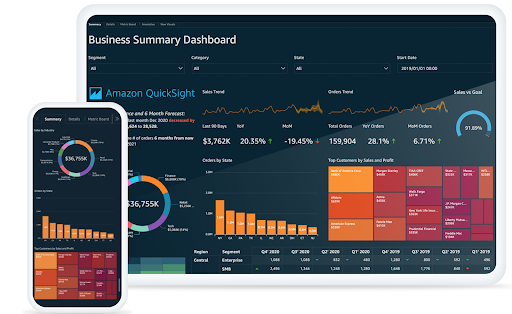
Through the use of business intelligence, Amazon can gain a better understanding of its customers’ behaviors and preferences by harvesting data such as what products were viewed, customer reviews, and shipping addresses. This tactic allows them to present tailored product recommendations or targeted ads that motivate users to make further purchases.
With this valuable insight, they can also craft more relevant items and services for their shoppers. Leveraging business intelligence has allowed Amazon to gain insight into customer trends and sales performance to make more informed decisions. They can also create dynamic marketing campaigns tailored to their customer’s needs, ensuring that they remain ahead of the competition in terms of e-commerce experience. With personalized experiences available at every turn and a keen eye for detail, it’s no wonder why Amazon remains firmly situated atop the industry leaderboard.
Starbucks
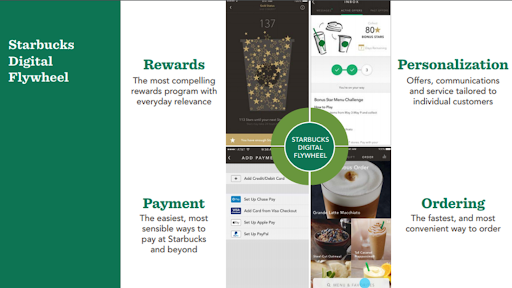
Starbucks’ reward program and mobile app enable them to collect data from customers about what, where, and when they purchase coffee. The Starbucks Digital Flywheel is a cloud-based artificial intelligence engine that provides highly accurate suggestions for food and drinks. This is a great example of cloud adoption in the retail industry, demonstrating how cloud computing can be used to capture customer data and generate insights. Starbucks can then use these insights to recommend product offerings more likely to appeal to its customers.
Best Buy
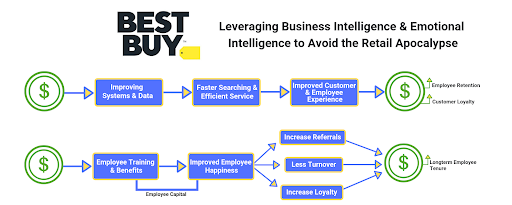
Best Buy takes a personalized approach to its customer service, from the store’s online presence to point-of-sale systems. Applying business intelligence in the retail industry enables Best Buy to comprehend customer requirements and monitor market trends for effective promotional campaigns. With the ability to grasp and evaluate customers’ habits through data insights, companies can create an ideal shopping experience for them. Best Buy leveraged BI to develop adaptive pricing strategies, propelling their company ahead in a continuously evolving market.
These business analytics applications in retail industry case studies demonstrate how businesses can gain valuable insight into customer behavior and preferences by leveraging the power of business Intelligence. Leveraging this technology empowers companies to identify the proper tactics to foster customer loyalty and satisfaction, giving them a competitive advantage. Business intelligence enables businesses like Best Buy to develop targeted campaigns specifically designed to meet their customers’ desires while simultaneously expanding their sales revenue.
Target

For years, Target has harnessed business intelligence to its benefit. With predictive analytics and data-based analysis, they can understand customer preferences and accordingly offer adapted promotions or discounts. Not only does this system give them the ability to comprehend shoppers’ outlooks better, but it also provides an opportunity for more conversions with personalized advertisements. Furthermore, automation has helped businesses like Target save money by eliminating laborious tasks.
Walmart
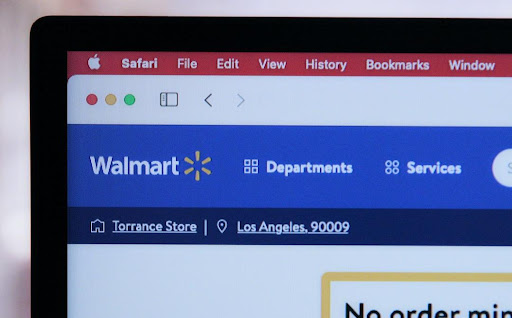
Walmart is using business intelligence to unlock actionable customer insights. With data mining, Walmart has identified customers’ buying patterns and presented them with tailored product recommendations based on what they have purchased together or just before a certain item. Thanks to BI, Walmart has boosted its conversion rates to remain competitive within the retail industry.
Macy’s

Macy’s is taking advantage of the power of retail business intelligence to better track and forecast inventory, tailor promotional activities, identify customer behaviors, monitor changing market trends, and recognize product preferences. This allows them to quickly create more pertinent content for their customers while also maximizing the Macy’s Media Network so that they can collaborate with vendors in a mutually beneficial fashion.
Business intelligence (BI) has become a cornerstone of operational success, and these seven companies are the perfect embodiment of that. With their advanced BI capabilities, they have been able to stay ahead in this competitive retail environment.
Build the retail company of the future with Retail BI
It is no longer enough to have a shop where customers can purchase goods or services. To remain competitive, businesses must provide an exceptional customer experience requiring data-driven insights. Business intelligence can provide every business owner with the robust data they need to make smart decisions that will lead to success.
Being one step ahead of your competitors is essential in the retail industry, and having access to real-time data can make all the difference. Retail Business Intelligence equips you with accurate information about what customers are looking for so that you can confidently adjust your strategies accordingly. With RBI, decision-making becomes a breeze as it eliminates guesswork from the equation by providing reliable knowledge.
Why wait any longer? Book a retail customer engagement consultation with ContactPigeon today and start transforming your business into the retail leader of tomorrow. Create the ultimate customer experience and maximize your profits with retail business intelligence.

Let’s Help You Scale Up


